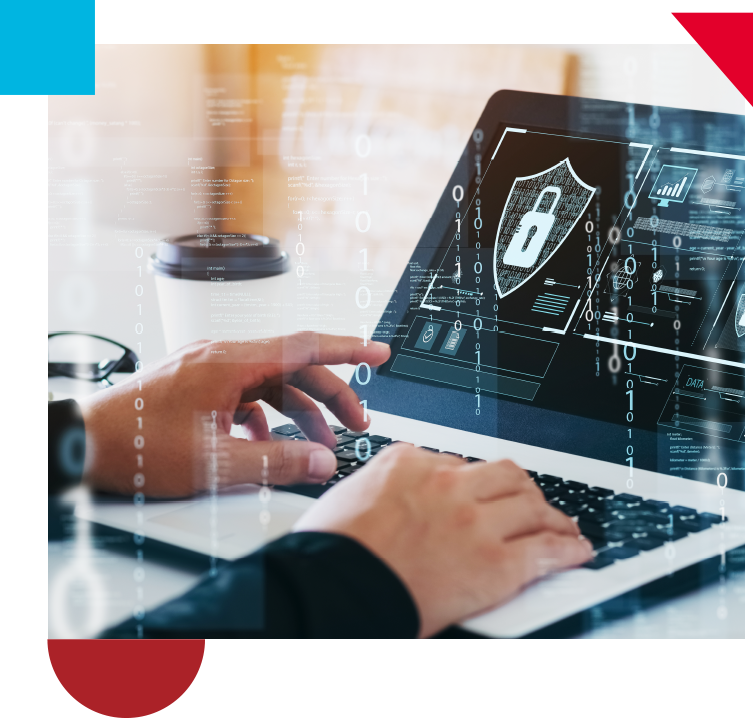In Partnership with |
|
|
Why a Career in Network Security and Digital Forensics?
As cyber attacks become more frequent and sophisticated, the demand for incident response professionals who possess quick thinking and savvy techniques to secure systems is on the rise. These professionals are crucial in responding to security incidents and reducing the damage inflicted upon organisations, making the career path of incident response an exciting and dynamic field in the world of cybersecurity.

Network Security focuses on protecting the integrity, confidentiality, and availability of an organisation’s network infrastructure. This involves implementing strategies and tools to detect, prevent, and respond to unauthorised access, data breaches, and other cyber threats targeting networks.
Digital Forensics involves the identification, preservation, analysis, and reporting of digital evidence following a security breach or cyberattack. It plays a vital role in investigating cyber incidents, understanding how they occurred, and ensuring the evidence is admissible in legal proceedings when necessary.
Together, these domains are essential for safeguarding digital systems and responding effectively to cyber threats in today’s increasingly interconnected world.
Potential Job Roles
SCTP graduates equipped with expertise in Network Security and Digital Forensics can explore roles such as:
- Network Security Engineer
- Digital Forensic Analyst
- Ethical Hacker (Penetration Tester)
- Security Auditor
- Incident Response Specialist
- AI Security Specialist
- Cybersecurity Consultant
- Forensic Investigator
For those currently in a management role, this course can help you understand cybersecurity so that you can manage your team of cybersecurity specialists.

Fees and Funding
| Applicants/ Eligibility | Subsidy Applicable | Fees Payable (After GST) |
| Singapore Citizens and Singapore Permanent Residents < 40 years old | Up to 70% | $4,381.80 |
| Singapore Citizens ≥ 40 years old | Up to 90% | $1,701.80 |
| Singapore Citizens who qualify for Additional Funding Support (AFS)2 | Up to 95% | $1,031.80 |
| Others | Full fees payable | $14,606.00 |
1 As per SSG’s policy, the GST payable is calculated based on 9% of the nett fee payable after baseline funding subsidy of 70%.
2 Individuals must be Singapore Citizens and meet one of the following criteria:
- Long-term unemployed individuals (6 months or more); or
- Individuals in need of financial assistance (ComCare, Short-to-Medium Term Assistance (SMTA) recipients or Workfare Income Supplement (WIS) recipients); or
- Persons with Disabilities
Singaporeans aged 25 years and above may use SkillsFuture Credit (opening and top-up) and Additional SkillsFuture Credit (Mid-Career Support) to offset the out-of-pocket course fees for SCTP.
From 1 May 2024, a SkillsFuture Credit top-up of $4,000 will provide greater support for mid-career Singaporeans aged 40 years and above to further offset out-of-pocket course fees for the SCTP. Visit https://www.skillsfuture.gov.sg/level-up-programme for more details.
| Course Modules | Course Duration |
| IT Network Security | 57 Hours (50 Classroom Hours, 7 eLearning Hours) |
| Ethical Hacking and Penetration Testing | 57 Hours (50 Classroom Hours, 7 eLearning Hours) |
| Information Security Monitoring and Audit | 26 Hours (22 Classroom Hours, 4 eLearning Hours) |
| Digital Forensics | 36 Hours |
| AI in Security | 14 Hours |
| Capstone Project | 40 Hours |

Minimum polytechnic diploma

Previous Experience in IT for 1 year in areas such as IT helpdesk or programming work


 Course Fees before GST and Subsidy
Course Fees before GST and Subsidy